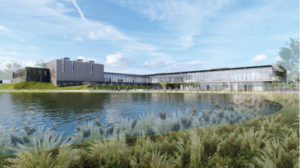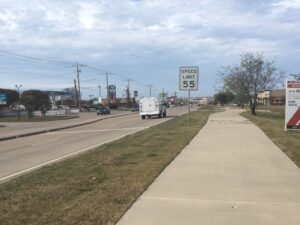BLOGGER’S NOTE: I published a version of this essay a while ago. I submitted a longer version of it for publication in the Princeton Herald. The newspaper published it today, so I decided to send this repurposed and expanded version of the earlier post out for your enjoyment.
Not long ago, I received a heartwarming moment of affirmation. It came from a gentleman I encountered while shooting some pictures for the Princeton Herald.
I was taking some photos of a Habitat for Humanity house that was nearing completion on Harrelson Drive in Princeton. I introduced myself as a representative of the Princeton Herald and told the project managers I had written a story on this particular site about a year ago.
The gentleman to whom I referred earlier heard me greet the managers. He then told me something that thrills me to no end. “I read your earlier story and it motivated me to get involved with Habitat for Humanity,” he said.
My reaction in the moment as I recall it was muted. I thanked him for getting involved, but it didn’t really register to me what his underlying message was when he offered that statement.
It was that community journalism, the kind of craft I am practicing now as a semi-retired journalist, presents these kinds of triumphs all the time. People occasionally are inspired to get involved, to pay back to their communities, based on what they read in the local newspaper. How cool is that?
The name of the gentleman isn’t important. What he said to me is what counts.
I am heartened that the work we do in reporting on our communities can have this kind of impact.
I want to stress something else about those of us who have worked in the media and who do so going forward. Media representatives – even semi-retired folks like me – are operating in a hostile environment. The hostility comes from politicians and their followers – I feel no need to tell you who, as you probably know – contend that the media are the “enemy” of Americans.
Not true!
Not only do they disparage the work, they denigrate the individuals who do their jobs with honor and honesty. We all have heard the language that pours out of some politicians’ mouths.
Community journalism, as I understand the definition of the term, intends to report to those who consume community news on the status of the cities and towns where they live. Those of us who write for community news organizations seek only to hold officials accountable for decisions they make. They make decisions that determine how much we pay in taxes to fund our government; they determine the level of police and fire protection we receive for the money we pay; they decide when to pick up the trash we produce in our homes. These officials also provide clean water we use to bathe and drink; they repair our streets, making them safe for us travel.
Indeed, Princeton is in the midst of a major street renovation program at this very moment.
Community journalism also tells stories such as the one to which I referred at the start of this essay.
How can any of this be seen and described as the work of an “enemy”?
The gentleman I met that day in front of the Habitat for Humanity house on Harrelson Drive likely didn’t intend for me to accept his statement as an affirmation of the work I do for the Princeton Herald.
But I surely did.
He provided hope that all is not lost even in this toxic environment that occasionally causes people in power to disparage the work done all across this great land by media representatives whose only mission is to tell their communities’ stories.
I do so in my community with great pride.
johnkanelis_92@hotmail.com


